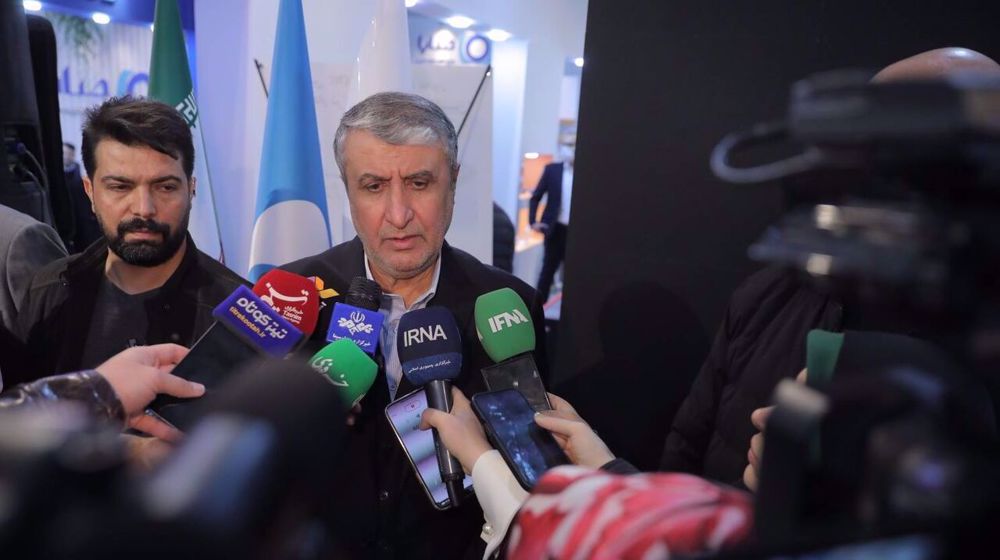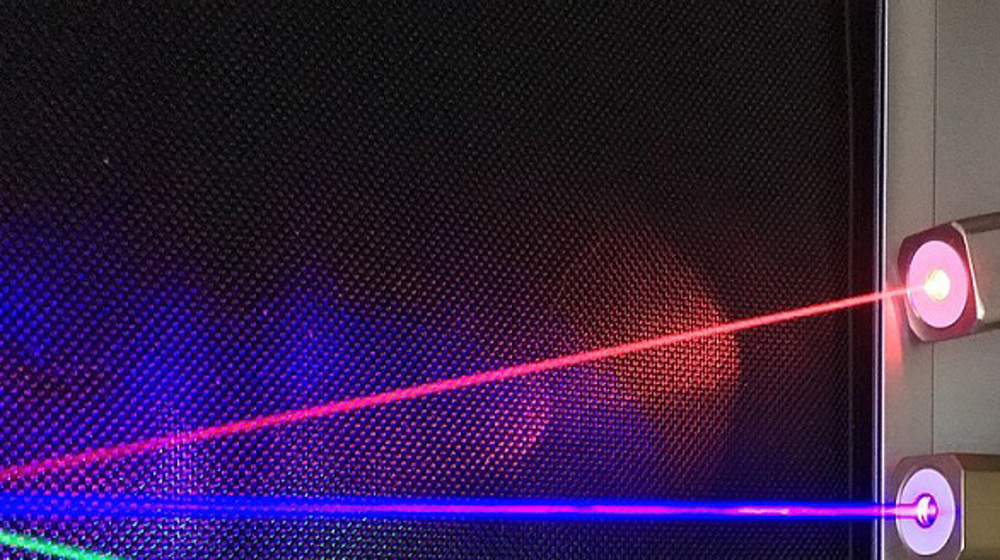Iran ‘categorically’ deplores IAEA resolution, vows ‘appropriate action’
Iran has deplored the latest resolution passed by the International Atomic Energy Agency (IAEA), saying the Islamic Republic would take “appropriate action” where the sponsors of the move would stand responsible for any "repercussions."
“Adoption of this resolution will neither encourage Iran to grant access to the Agency based on fabricated and unfounded allegations, nor will it force Iran to come down from its principal positions," Kazem Gharib Abadi, Iran’s permanent representative to Vienna-based international organizations, said in a statement on Friday.
Earlier in the day, the Board of Governors at the UN's nuclear agency passed the resolution, put forward by Britain, France and Germany – the three European signatories to the landmark 2015 nuclear agreement, officially known as the Joint Comprehensive Plan of Action (JCPOA).
The resolution, the first of its kind since 2012, urges Iran to provide the IAEA inspectors with access to two sites that the trio claims may have been used for undeclared nuclear activities in the early 2000s.
The Islamic Republic rejects any allegations of non-cooperation with the IAEA, insisting that it is prepared to resolve potentially outstanding differences with the IAEA.
Putting on record the Islamic Republic's position on the recent resolution, Gharib Abadi hailed efforts made by some, especially Russia and China, who objected to “this unconstructive path.”
“Considering the extensive level of constructive cooperation between Iran and the Agency and simply overlooking this level of cooperation, adoption of this resolution aimed at requesting Iran to cooperate with the Agency is deeply disappointing.”
He also expressed deep regret over the three European states’ failure to "take any concrete practical step in the implementation of their obligations under the JCPOA," which in addition to “unilateral, illegal and destructive measures by the US caused the future of the nuclear deal to remain gloomy.”
He advised the trio to “at least avoid making the situation more complicated and difficult” than being unable to save the JCPOA.
“Paradoxically, your lack of action was needed here, which it seems that you couldn’t even do this,” Gharib Abadi said.
In May 2018, US President Donald Trump took an illegal and unilateral decision to end Washington’s participation in the nuclear deal and re-impose the sanctions that the agreement had lifted, in defiance of the fact that the accord has been endorsed by UN Security Council Resolution 2231.
Under Washington’s pressure, the three European signatories to the JCPOA have so far failed to fulfill their contractual obligations to protect Tehran’s business interests against the sanctions.
The Iranian envoy also warned of a “trap set by the US and Israeli regimes” who had spared no efforts over the past two years to destroy the international accord.
They “used all tools of pressure on the Agency, including through presentation of such baseless allegations, to deflect the ongoing appropriate course of cooperation and divert the attention from their non-compliance with their relevant international obligations, or being stayed out of the most important international instruments on disarmament and arms control,” the statement read.
He criticized the IAEA's secretariat and its Board of Governors for turning a blind eye to the nuclear activities of Saudi Arabia and the Israeli regime, “who are not even allowing the Agency to do the required inspection.”
Gharib Abadi emphasized that Iran has always applied the additional protocol “voluntarily and provisionally due to its political commitment under the JCPOA.”
“Iran does also have a solemn advice to the Secretariat of the Agency to: adhere to the limits of your authorities; acknowledge the cooperation between Iran and Agency; carry out your mandate in a professional, independent and impartial manner; do not pave the way for manipulation of issues for those with political agendas through taking positions and reporting hastily; behave in a way not to be blamed for the obliteration of the last bastion of multilateralism in Vienna and the destruction of the JCPOA,” he said in conclusion.
Read more:
- Iran will never allow US to exploit IAEA to kill nuclear deal: FM Zarif
- No change in Iran JCPOA implementation, cooperation with agency: IAEA chief
- Iran to react if US prevents lifting arms embargo as per nuclear deal: President Rouhani
- Trump's approach to kill JCPOA will 'do irreparable damage' to UNSC: FP
The resolution was passed by 25 votes in favor, two against, with seven abstentions: South Africa, India, Pakistan, Thailand, Mongolia, Azerbaijan and Niger.
Russia and China, two other permanent members of the UN Security Council and signatories to the JCPOA, voted against.
In a post on his Twitter account, Russia’s Permanent Representative to International Organizations in Vienna Mikhail Ulyanov called on Iran and the IAEA to settle issues pertaining to the two nuclear sites "without delay."
"We believe that the resolution can be counter productive," he tweeted.
The Chinese diplomatic mission to the IAEA also warned on Twitter that the resolution could have "huge implications" for the future of the JCPOA.
Read more:
FM: IRGC upholds peace, stability as foreign meddling fuels escalation
VIDEO | Global order on the brink
VIDEO | 47th anniv of Islamic Rev.
Israeli claims of ceasefire violations meant to 'justify massacres' in Gaza: Hamas
Iran says framework for talks with US taking shape
US government partially shuts down as ICE killings spark funding standoff
VIDEO | Trump may have sent an 'armada', but Iran has options
VIDEO | Resisting through music: When art defends Palestinian identity












 This makes it easy to access the Press TV website
This makes it easy to access the Press TV website